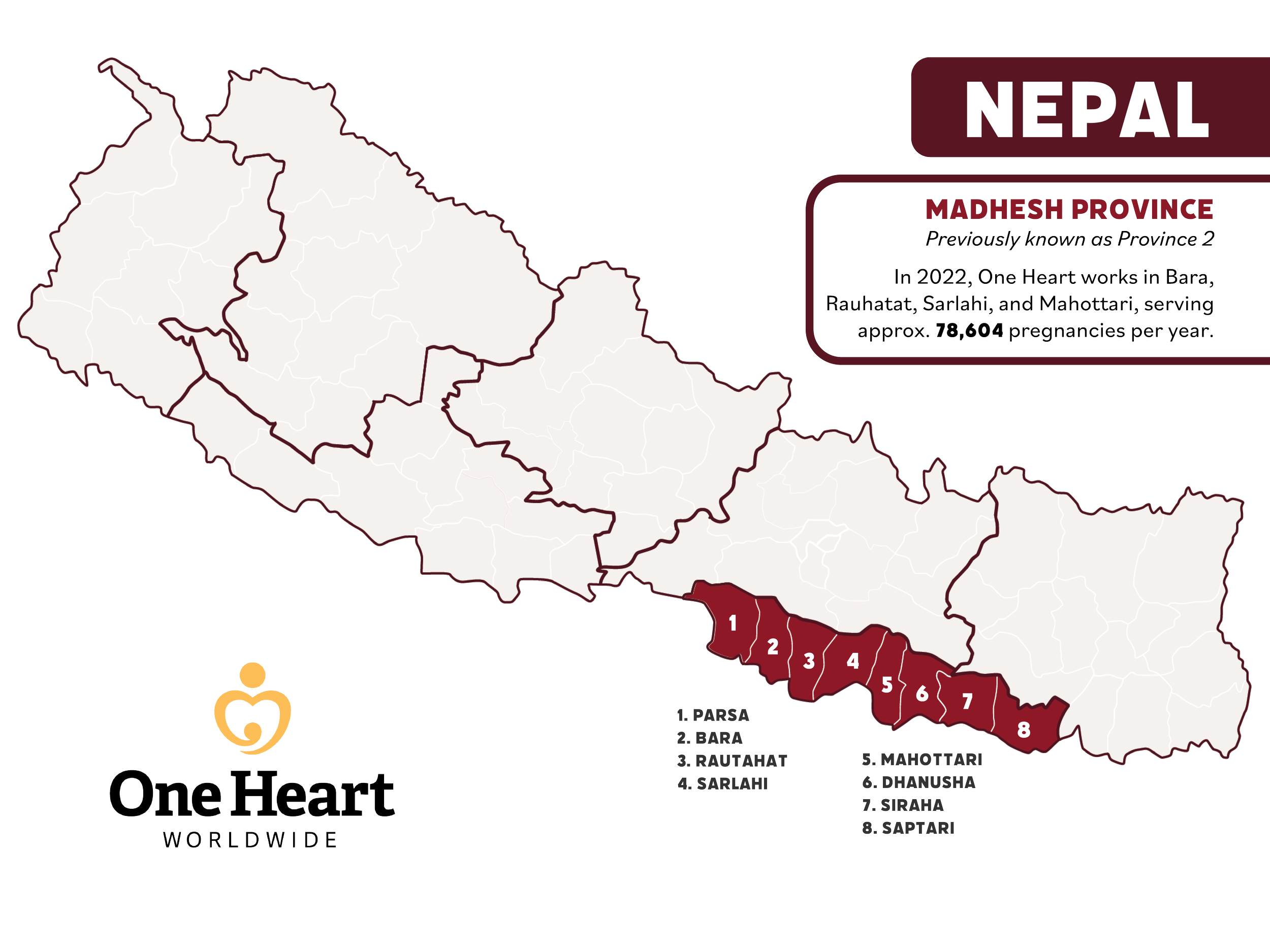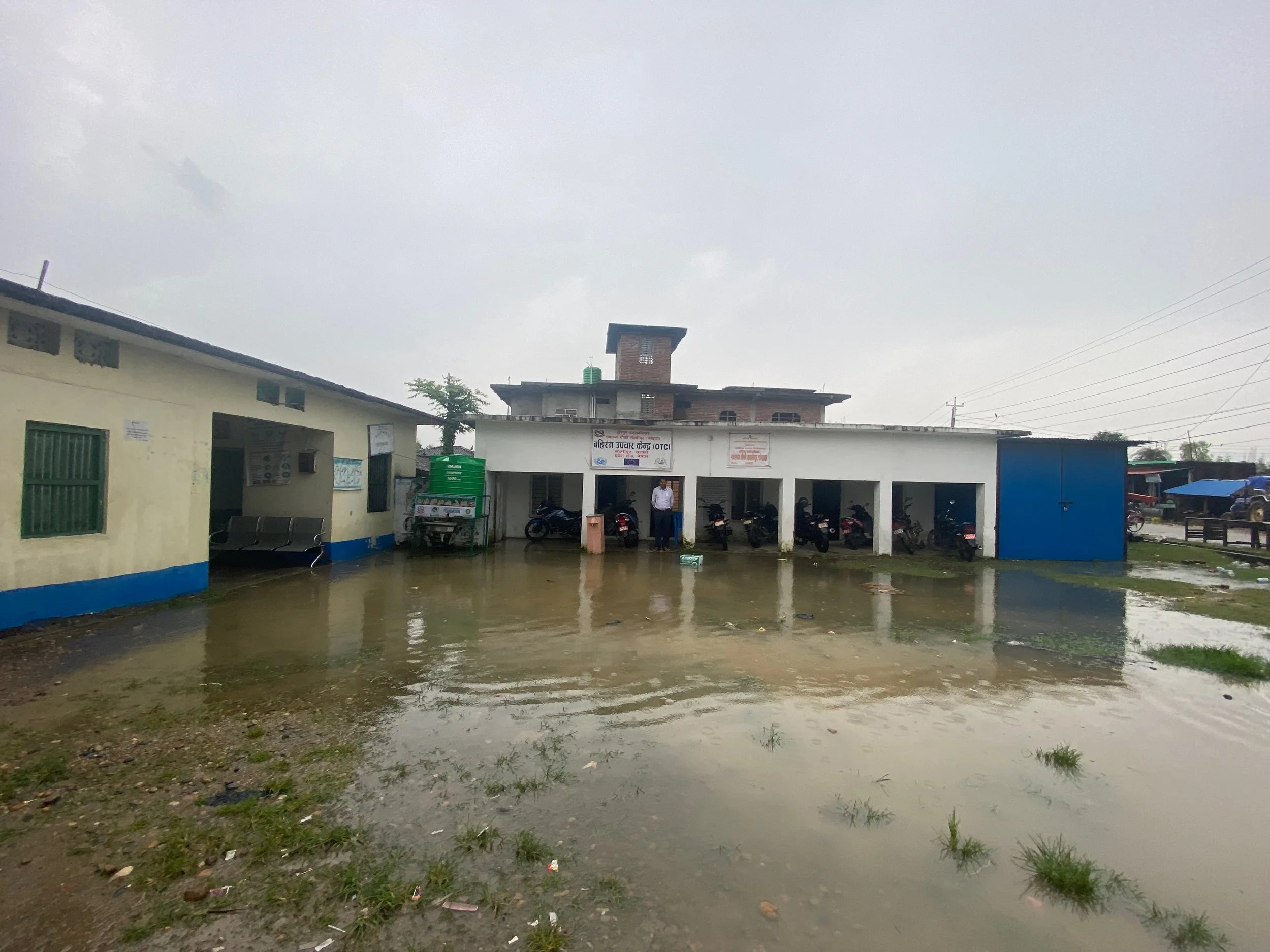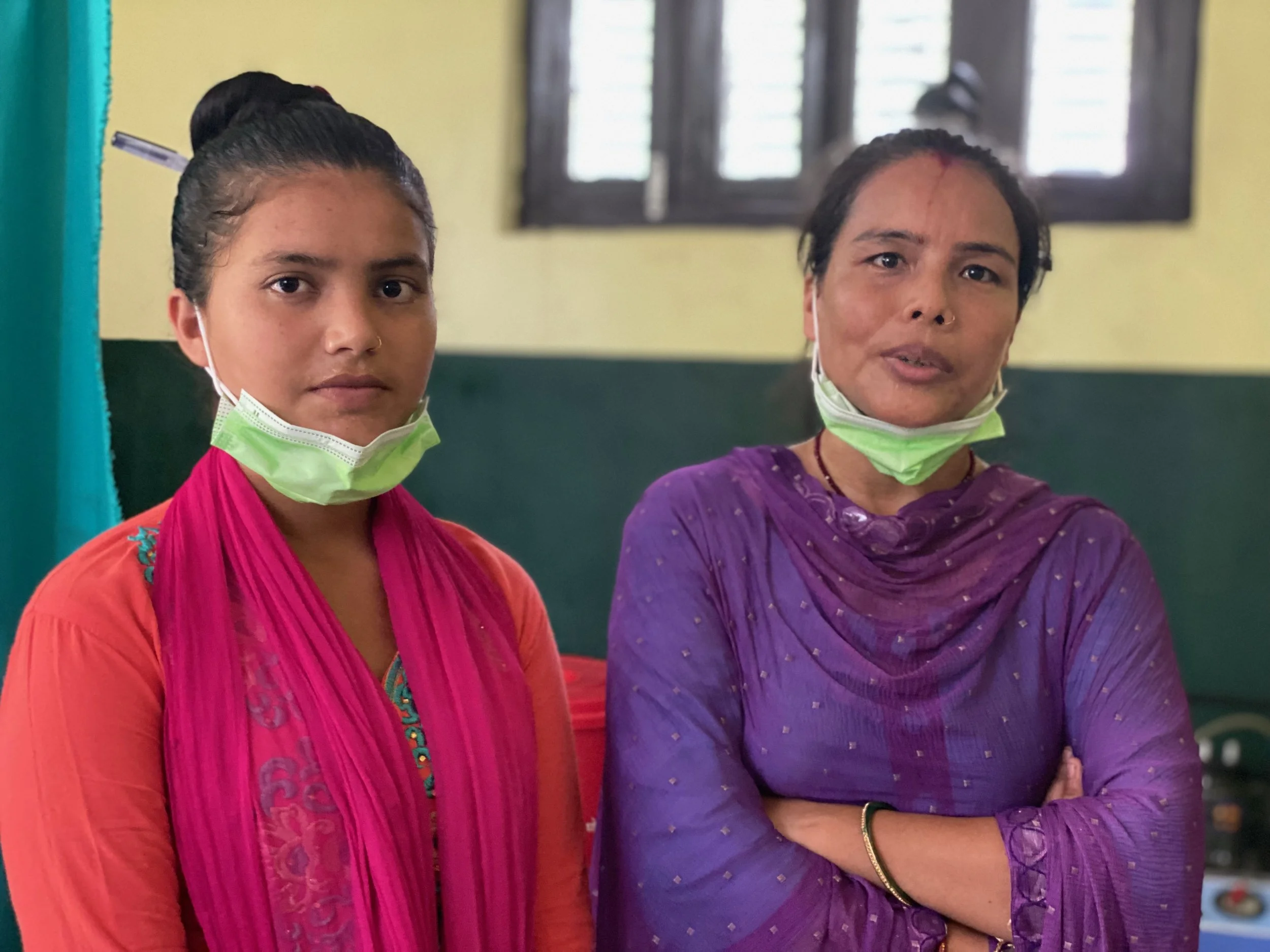A new journey: OHW in the Madhesh Province
By Amrendra Ray in Sarlahi, Nepal
OHW launched its program in Madhesh Province this year. Madhesh Province is a province in the southeastern region of Nepal that was formed after the adoption of the Constitution of Nepal. It is Nepal's most populous province, and smallest province by area. The challenges of working here are different to other provinces we have previously worked in but there are also many opportunities to make a difference in Nepal’s maternal care services.
One Heart Worldwide’s work in the hill and mountain districts of Nepal is well known across the country for its impact on improved maternity care. We are hoping we can continue to build OHW’s legacy in Madhesh Province (formerly known as Province No. 2), where OHW introduced its MNH program in 2022 for the first time. Madhesh Province, bordering the Northeastern part of India, is much different from the other areas we have worked in. Instead of vast mountain ranges, we are working in the southernmost region of Nepal where the terrain is mostly plains. Local government officials and rural health service providers are looking forward to learning how OHW can use its proven experiences to impact the health and well-being of people who give birth in Madhesh Province
As the District Coordinator of Sarlahi, one of the eight districts of this province, I have an important responsibility to steer OHW’s program in the best way. I am a local citizen of this province, I know there are so many challenges but at the same time, I also see a lot of opportunities for us to make a meaningful impact to improve the government’s maternal healthcare services.
At first glance, any new visitor will see that the road access is much better in Madhesh than in hilly and mountainous areas of Nepal. Our transportation system is better and so the health facilities are also more accessible. However, life is hard for many communities and we have one of the highest maternal and infant deaths rates in the country.
Sarlahi has Nepal’s second-lowest literacy rate. During our baseline survey, we found that the level of knowledge and awareness around pregnancy is so poor, that a large number of recently delivered mothers and their families are not even aware of the existing government incentives (ex: cash incentives for institutional birthing). Most birthing centers are in poor condition and lack proper equipment and tools.
Many nurses are not trained as Skilled Birth Attendants (SBAs) and therefore their skill acquisition is lower than other parts of Nepal.
There is low investment in maternal and neonatal healthcare and its infrastructure.
A lot of government guidelines for quality birthing centers are not actively put into practice.
We also found that cultural and social norms affect women’s decision-making.
Women constantly need permission from male household members to even go to health facilities to obtain services.
All of these and many other factors are putting the lives of many pregnant women, mothers and infants at high risk.
OHW aims to address these issues and work in close partnership with local governments by providing technical support and contributing financial resources. The idea of partnerships with non-government organizations (NGOs or non-profits) in the health sector is quite new for our local government and there is already a lot of enthusiasm to learn and collaborate. We have been consistently coordinating with local government, health units and officials to work as partners and make MNH a priority in their development, planning, and budgeting.
While there are several organizations working in the health sector in Madhesh Province, they are not fully invested in MNH and only work in a few municipalities. OHW is fully invested to make a difference and has been working in all 20 municipalities/local levels within Sarlahi district.
Building new birthing centers and providing medical equipment is not enough - and we know that thanks to our conversations with people who live in the communities we work in. There is a need to allocate financial resources, involve government leadership and train service providers - all of which are key to making our MNH program a big success.
We are up for the challenge, but we can’t do it without your support!
Like this story?
Share it on Facebook
Follow us on Instagram
Donate to support our programs in Madhesh






